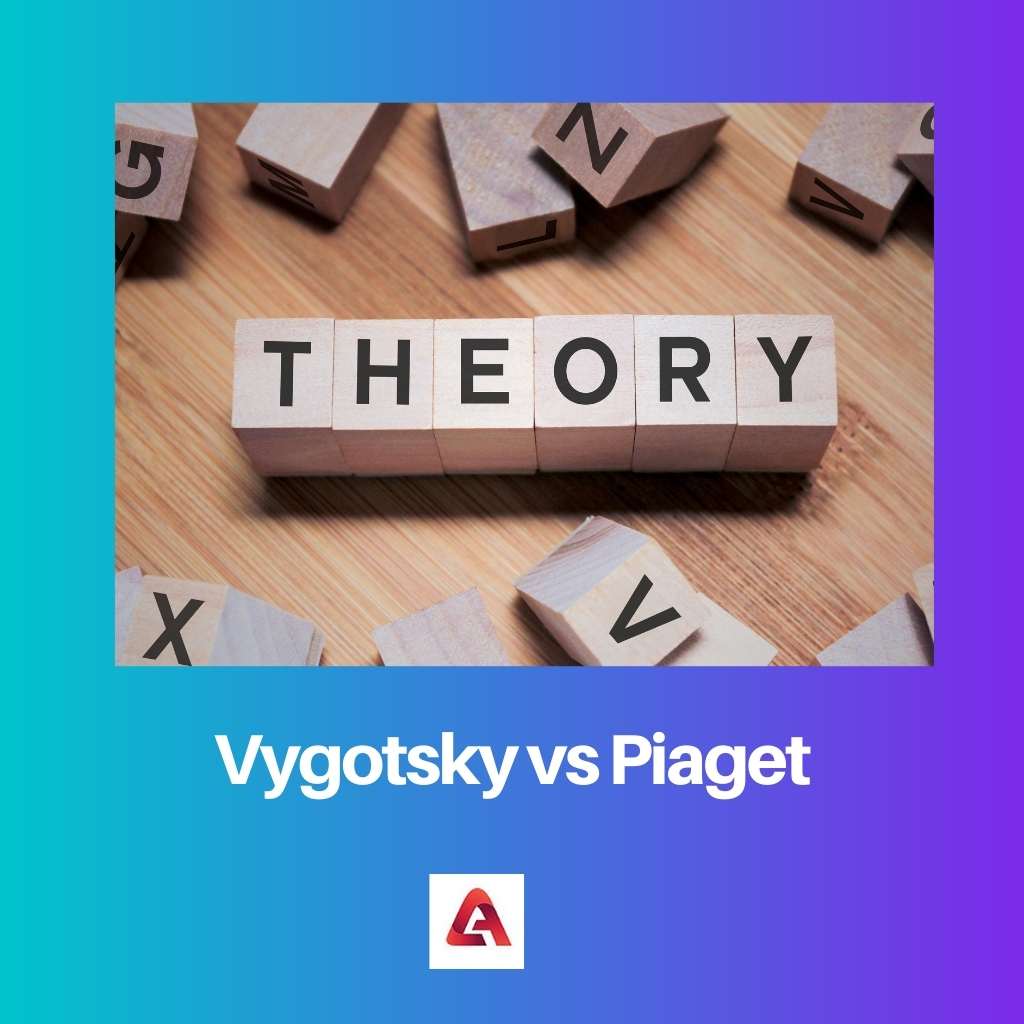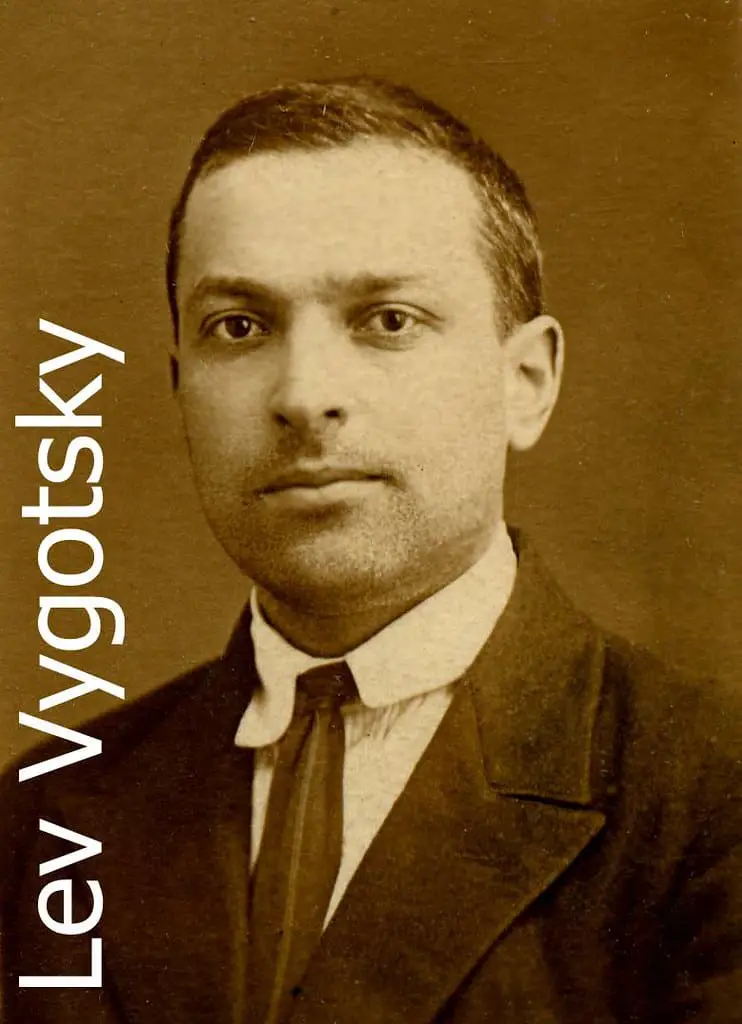Lev Vygotsky and Jean Piaget both state that social interaction is important when it narrows down to a person’s cognitive development.
When these theories developed and gained the attention of psychologists, Vygotsky and Piaget affirmed their ideas to be exclusive.
Though recent research has found that these theories are complementary, they differ in some essential aspects.
Key Takeaways
- Vygotsky’s theory emphasizes social interaction and cultural influences on cognitive development, while Piaget’s theory focuses on the individual discovery and self-guided learning.
- Vygotsky’s zone of proximal development highlights the importance of scaffolding and guidance from more knowledgeable others.
- Piaget’s theory is organized into four distinct stages of cognitive development, whereas Vygotsky does not have specific developmental stages.
Vygotsky v/s Piaget
The difference between Vygotsky and Piaget is that Vygotsky determines that a person learns through social interactions and cultural aspects, whereas Piaget believes in the productive approach of a child. The theory of Vygotsky revolves around the objective that communicating socially is the principle of learning,. In contrast, Piaget’s theory suggests that a child goes through mental development, in four different stages.

Lev Vygotsky, born in 1896, was a teacher in Russia who was also a great explorer of learning.
He was a psychologist who determined that our cognitive growth is influenced by our social interactions and was convinced that people learn through communicating
with other people in the community, such as peers, teachers, adults, and other idols.
Jean Piaget was a constructivist of psychology who determined that learning is a reciprocation of accommodation (adjusting old concepts in a new environment) and assimilation(adjusting to the new environment in old pictures).
These two processes to-and-fro leads to short-term learning as well as change in long-term development, and Piaget’s theory focuses mainly on long-term development.
Comparison Table
| Parameters of Comparison | Vygotsky | Piaget |
|---|---|---|
| Theory determines | Vygotsky’s theory determines that learning is done through interacting socially. | Piaget’s theory determines that learning is taught through personal explorations. |
| Knowledge | Knowledge is acquired when children learn to work together in a group. | Thoughts drive language. |
| Language | Thoughts are driven by language. | Language is driven by thoughts. |
| Context | Development varies depending on the social and cultural context. | Development stays the same regardless of the context. |
| Constructivism | Vygotsky is a constructivist in society. | Piaget is a cognitive constructivist. |
What is Vygotsky?
Lev Vygotsky was a Russian teacher and a psychologist who was a great explorer of social contexts and the first person to examine how social interactions affect the cognitive growth of a person.
He was convinced by the idea that learning is taught through social interaction with all ages in society. He was keen to understand social-environmental understandings and thus created a unique theory
about it is known as Vygotsky’s sociocultural theory of cognitive development.
Vygotsky had a revolutionary idea about language being the fundamental point of learning, and this points debate that language encourages other activities like reading and writing.
He also claimed that logical reasoning and reflective thinking are both the result of language,, which led to the development of instructional strategies that supported the classroom set-up in literacy and re-evaluation.
The first role of the teachers in this setup is to act as a promotor of learning.
Comprehensive discussions or interactions, and creating an engaging community are the prizes strategies that are needed for cognitive development and outlined three significant concepts associated with it:
- Culture is essential in learning.
- Language is the source of learning.
- A person develops and learns inside his role in the community.
A person’s moral values and beliefs define the culture of his community, and it takes years to shape culture.

What is Piaget?
Jean Piaget was a Swiss development psychologist born in 1896 who created Piaget’s theory of cognitive development. It is a broad theory about the behaviour and evolution of human intelligence.
The theory deals with epistemology and how human attains, creates, and use it.
This theory is also known as the development stage theory. In this theory, Piaget proposed that an individual goes through four stages of development.
The first stage, i.e. The sensorimotor stage, starts from birth to obtaining language.
Infants in this stage gradually build intelligence and understanding of the world by synchronizing their vision and hearing by physically interacting with things such as stepping and grabbing.
The second stage is the preoperational stage which starts when the toddler begins to speak, and lasts till the age of seven.
During this stage, Piaget noted that kids do not fully understand the logic and cannot manipulate information mentally.
The third stage of Piaget’s theory of cognitive development is the concrete operational stage, which falls between the ages of 7 to 11 years.
During this stage, a child begins to think more maturely, almost like an adult and starts to solve problems logically, but hypothetical thinking is not evolved in them.
And the last stage is the formal operational stage which is from adolescence into adulthood. In this stage, the person can think hypothetically and reduce reasoning.
Main Differences Between Vygotsky and Piaget
- Vygotsky states that the key to cognitive development is language, whereas Piaget stated that language is just the result of cognitive development.
- Vygotsky’s theory creates opportunities for kids to learn with the help of their teachers and mentors whereas Piaget’s theory supports kids to experience everything on their own.
- Vygotsky’s theory states that development differs from culture to culture, whereas Piaget states that development is universal.
- Vygotsky believes that people learn by interacting with others whereas Piaget believes that people learn from their experiences.
- Lev Vygotsky is a social constructivist, whereas Jean Piaget is a cognitive constructivist.



